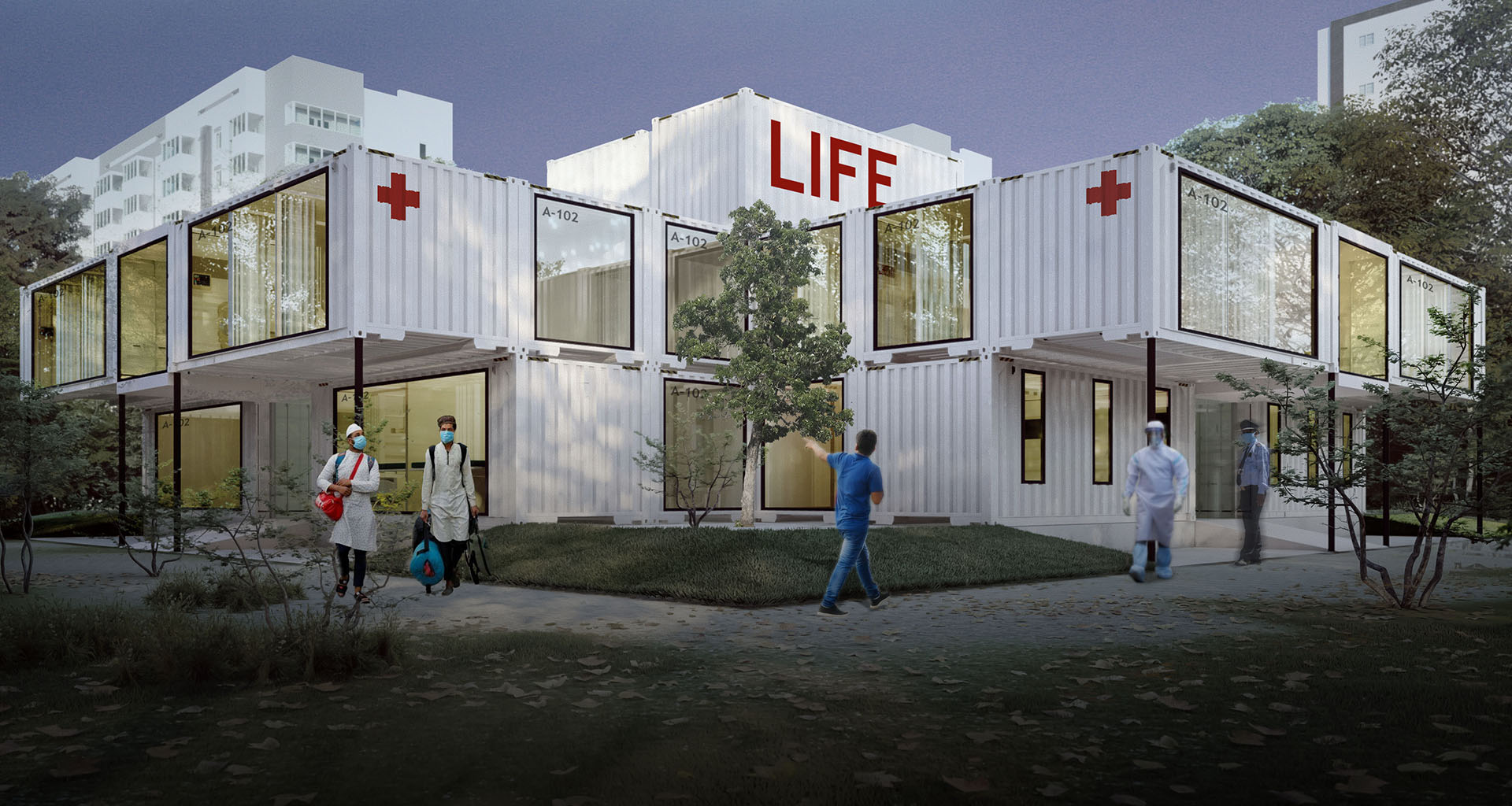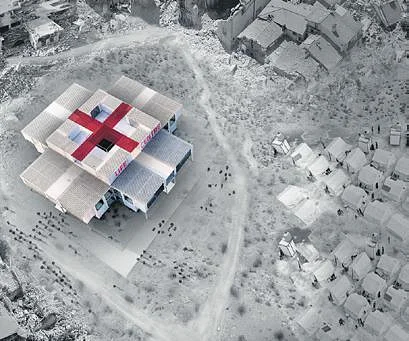

How relevant is LifeCMF in Covid?
The pandemic has brought to light the current inefficacy and inadequacy of medical infrastructures. It raised questions on the attitudes towards healthcare in the post-pandemic future. Primary healthcare services are fairly inconsistent in our country, and it’s time to re-invigorate it. LifeCMF aims to address such disparities in the distribution of healthcare resources.
Is it a digital or physical prototype?
Architecture Discipline has been experimenting with the use of shipping containers as a building material for a long time now. Apart from using it for LifeCMS, we have used it in a couple of projects, including our own studio building. LifeCMF is currently a digital prototype, but it can be expanded into a physical prototype. Its modified version was also used to design Mohalla Clinics in Delhi that we are designing and building for the Delhi government. The prefabrication of these clinics are underway and they are slated for deployment soon.
What are its best features?
LifeCMF is delivered as ready to operate modular and expandable pods. Each pod is flexible to be configured singularly or in combination of two or more containers. They can function as a primary care unit, critical care unit, surgical suite, trauma/ emergency unit, isolation or recovery pod, and support functions such as pharma, screening or diagnostic lab units.

Since the pods are made from steel shipping containers with R-19 insulation and temperature control devices, they can withstand extreme weather conditions, earthquakes, harsh terrain, and security threats. The use of containers allows the CMFs to be easily deployed anywhere. With the clinic already assembled within the container, these can be used as emergency care facilities for Covid-19 patients and primary healthcare centres.
How much time does it take to install LifeCMF in an emergency situation? And does it require high-expertise?
Modules are prefabricated with all necessary furniture and equipment. They can be deployed rapidly, only requiring minimal on-site construction for foundations and joinery between modules. The Mohalla Clinics took 3-15 days to complete, including the time taken for prefabrication and container procurement. The deployment time, however, varies according to scale. The prefabrication takes place in controlled factory environments to ensure an optimum level of construction quality and hygiene. Then they can be installed and assembled with limited labour and machinery.
When was it selected for the London Biennale? Was it showcased online?
LifeCMF was part of the India Pavilion at the London Design Biennale 2021, a selection of solutions against climate change put forth by leading Indian architects and designers. Titled ‘Small is Beautiful: A Billion Stories’, the India Pavilion displayed 150 seminal ideas that were selected through a rigorous judging process spread over three weeks. LifeCMF was also a part of ‘Design in an Age of Crisis’, a gallery of 500 submissions from 50 countries presenting radical ideas that respond to the world’s most pressing issues.